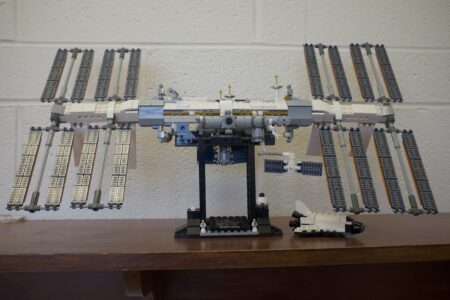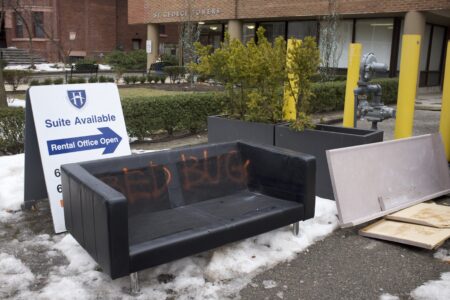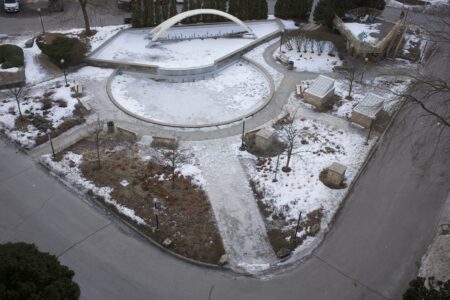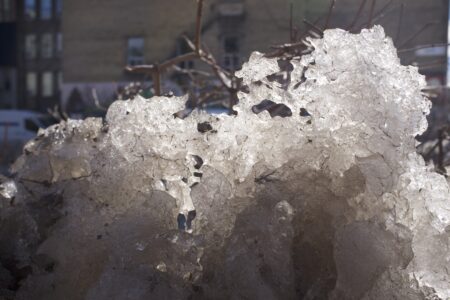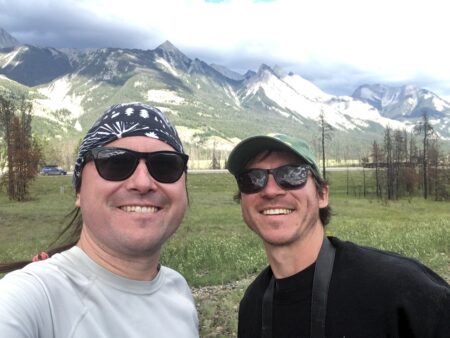Stairs and rails
“We Stand and Pray for Ukraine!”
BED BUG
Triangular park and fountain
Dirty snow
Experiential education on nuclear weapon proliferation
I have been searching for ways to get people to engage with the risks to humanity created by nuclear weapons.
The whole issue seems to collide with the affect problem: the commonplace intuitive belief that talking about good or bad things causes them to happen, or simply the instinct to move away from and avoid unpleasant issues.
Pleasant or not, nuclear weapon issues need to be considered. With the US-led international security order smashed by Donald Trump’s re-election and extreme actions, the prospect of regional arms races in the Middle East and Southeast Asia has never been greater and the resulting risks have never been so consequential.
To try to get over the ‘unwilling to talk about it’ barrier, I have been writing an interactive roleplaying simulation on nuclear weapon proliferation called Rivals. I am working toward a full prototype and play-testing, and to that end I will be attending a series of RPG design workshops at next month’s Breakout Con conference in Toronto.
I am very much hoping to connect with people who are interested in both the issue of nuclear weapon proliferation and the potential of this simulation as a teaching tool.
Photos from the Yellowknife drive
In the summer of 2003, I broke with my long avoidance of air travel so that I could first help my brother Sasha move from Behchokǫ̀, in the Northwest Territories near Yellowknife, back to Victoria, BC.
We did the drive through a vast terrain of wildfires in three intensive days, with Sasha driving.
I had been meaning for ages to get our photos processed, but because of the financial pain of the long PhD all my computers and software are quite obselete and were unable to handle the RAW files from his specific Fuji camera.
I have finally figured a workaround using Adobe’s digital negative (DNG) format, so now the photos are up.
Living across the country and avoiding flying, I have seen far too little of my brothers in recent years. I justified it because I thought I was living my values by making lifestyle choices to reduce my climate impact, and because I still hoped humanity might be reaching a level of understanding where we take the crisis seriously and respond in a useful and adaptive way.
Now I think I need to do a complete re-evaluation of what sort of political project makes sense. Ever since I first became involved in environmentalism in the 1990s, I had thought that eventually the universal experience of how the world is changing in frightening ways would make people willing to make changes themselves. Now, I really don’t know.
Still, I am immensely grateful that I got to spend this intensive time with Sasha and that our relationship is still deep and meaningful after years of almost exclusively telecommunicating. His integrity and determination are inspirations to me, and I try to draw from his example while trying to live my own life well.
Related:
We must all be brave
Trump ending the postwar security order
Having read extensively about international security and the post-WWII US-backed security order, it is very disturbing to see it all being smashed apart. From Foreign Affairs today:
Carrying out economic warfare on allies sows distrust and risks fracturing the transatlantic and Indo-Pacific security architectures that have underpinned global stability for decades. If Washington imposes tariffs on European and Asian allies, it will create a wedge that adversaries such as China and Russia will eagerly exploit. Beijing, for example, is seeking to drive a deeper divide between the U.S. and Europe by presenting itself as a more reliable economic partner. For its part, Moscow is capitalizing on transatlantic tensions to weaken NATO cohesion. The growing strategic partnership between these two authoritarian powers—cemented through military cooperation, economic agreements, and shared hostility toward the West—represents a direct challenge to the U.S.-led global order. By undermining trust with allies through indiscriminate economic aggression, Washington risks isolating itself at a time when maintaining strong, unified alliances is more critical than ever.
I think my work on regional nuclear weapons proliferation is going to become a lot more pertinent-seeming in the weeks, months, and years ahead.

